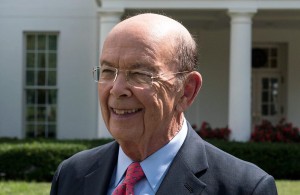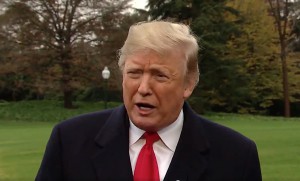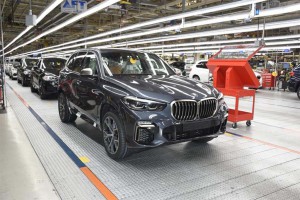
Commerce Secretary Wilbur Ross submitted the department's report determining if automotive imports could be declared a threat to national security.
Just hours before the deadline, the U.S. Commerce Dept. delivered a long-awaited report to the White House that could lead President Donald Trump to enact stiff new tariffs on imported autos and auto parts.
The administration has not revealed what the report recommends, but Commerce was widely expected to support the president’s position that auto imports posed a threat to national security, a view that Trump has suggested could lead to the imposition of tariffs of as much as 25%.
Criticism was swift and broad, the Motor and Equipment Manufacturers Association noting, ““Not a single company in the domestic auto industry requested this investigation.” Like other critics, the group has warned that new tariffs could backfire and not only result in the imposition of tariffs on U.S. auto exports but also slam consumers with substantially higher prices, even on vehicles assembled in the U.S.
While there has been no statement from the White House on the report, Trump has referred to himself in the past as a “tariff man,” and on Friday said, “I love tariffs, but I also love them to negotiate.”
(Commerce’s report on auto import tariffs coming on Sunday. Click Here for the story.)
The Administration previously enacted tariffs on billions of dollars of Chinese-made goods, including autos and auto parts. The White House has taken a different route towards the possibility of imposing tariffs on vehicles and auto parts imported from other trade partners, such as Germany, Sweden and Japan.

President Donald Trump will soon have to decide if using punitive tariffs makes sense in negotiations.
Nine months ago, Trump ordered Commerce Sec. Wilbur Ross to launch an investigation under Section 232 of the Trade Expansion Act which allows the imposition of sanctions where imports are seen as a threat to national security.
The report was submitted to the White House just hours before the end of its 270-day deadline late Sunday. Though details have not been released, opponents are worried the document will support the White House stand based on comments the administration has made in recent months.
“We believe the imposition of higher import tariffs on automotive products under Section 232 and the likely retaliatory tariffs against U.S. auto exports would undermine – not help – the economic and employment contributions” of Detroit’s Big Three automakers, said the American Automotive Policy Council. In a Monday statement.
(Click Here to see the Trump administration walk back its tariff claims.)
If the report does support the argument that auto imports pose a threat, and if the president then follows through, he could levy tariffs of as much as 25% on billions of dollars worth of cars and car parts, everything from luxury vehicles like the Meredes-Benz S-Class down to windshield wipers and batteries.
The exact impact is still unclear and would depend upon the wording of any sanctions document, but automakers have warned that it wouldn’t be just foreign-made cars that are impacted. Because of the components it uses, Toyota last year estimated that the cost of a typical Camry sedan – the best-selling passenger car in America – could rise by around $1,600. Some of the vehicles sold by the Japanese automaker’s high-line Lexus division – such as the $92,500 LC 500 – could jump in price by around $25,000 if the tariff is set at 25%.
The White House has not set a timeframe for the president to respond to the report, but reaction has nonetheless been broad. Those concerns have been exacerbated by industry fears that the U.S. auto market will begin a cyclical downturn in 2019 after posting a modest – albeit unexpected – increase last year.
“Unfortunately, the report has not been made public, highlighting, once again, the bogus nature of this investigation,” said Cody Lusk, president and CEO of the American International Automobile Dealers Association, in a statement. The group noted that it represents 9,600 international nameplate dealership franchises and their 578,000 American employees.
(China suspends punitive tariffs during trade negotiations. Click Here for the story.)
In a comment that reflects the broader concern of the American auto industry, Lusk said the completion of the report forces AIADA members “to operate under a cloud of uncertainty, not knowing if at any moment their products will be slapped with 25 percent tariffs, raising vehicle and repair costs by thousands of dollars and slashing sales.”

